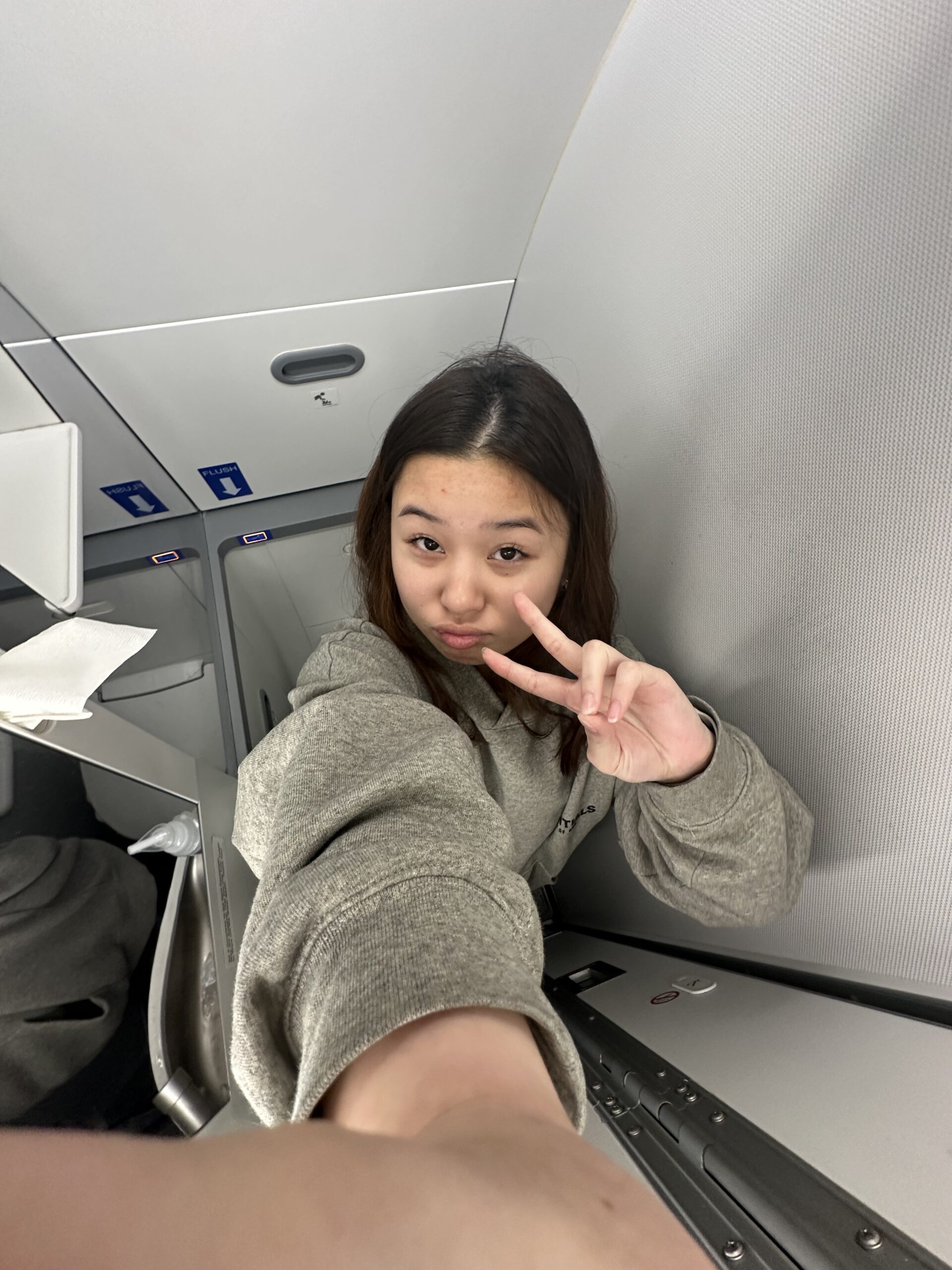Celebrating Destiny: a Journey to Transforming Education
Dev, our Communications & Development Manager, had a chance to sit down and chat with Destiny, one of FEEST’s Student Organizers, and let me tell you, it was an absolute blast! Learn more about Destiny by reading her biography and full interview below!
Learn about Destiny
Destiny (she/her) is an Asian American who grew up in a first-generation household. She was born and raised in South Seattle and is currently attending Franklin High School. Being a Student Organizer has given her more insight into her school and a deeper understanding about the mental health situation in Seattle Public Schools.
FEEST was her first time doing organizing and it made her realize that being an organizer is something she might want to do more once she is in college. Mental health is important to her as she grew up seeing mental health as a taboo thing to talk about and seeing how mental health has affected her and her family.
Destiny enjoys spending quality time with friends and watching anime in her free time. Destiny loves tiramisu and is a bubble tea connoisseur.
Dev: Hi Destiny! Thank you for taking the time to chat with me! I’m excited to get a chance to spotlight you! Feel free to Introduce yourself, and share anything that you are comfortable sharing like your Pronouns, Current Grade & School, favorite color, animal, shows you’re watching right now, etc!
Destiny: Hi! My name is Destiny, I use She & Her Pronouns, and a show I’m watching right now is Criminal Minds.
Dev: Ooh I love Criminal Minds, I should go back and rewatch it sometime soon. Thank you for introducing yourself! The next question I wanted to ask you is: Why did you decide to join FEEST?
Destiny: I had a friend who was in the program and he told me how fun it was, and we got to learn other things. I learned that at first FEEST was about getting better school lunches and I thought that sounded cool. When I joined the program I found out they were doing more mental health stuff and I knew that was really important to other students, so that’s why I really joined.
Dev: Thank you for sharing that! My next question is, what is one thing that you’ve learned about yourself while being at FEEST?
Destiny: Doing FEEST and other leadership positions outside of FEEST, I’ve learned that I can become a really good leader, and it made me think about my career goals. It helped me make the decision that I want to be in a leadership role when I grow up.
Dev: Thank you for your sweet and thoughtful answer! I love hearing about you making plans for your future. My next question is: What does Youth-Led Organizing look like to you?
Destiny: It looks like students working together who have a goal. Youth control the next steps, and acting on the action that we thought of!
Dev: Well said, Destiny! In the same direction, what is a piece of advice you would give an aspiring youth organizer?
Destiny: It’s not hard, it’s just a time-consuming process. If you are passionate about it you might as well do it, and get a group of like 20 friends, basically people who have the same goals as you to make it happen. It will happen, you just need to have the patience to find others who will help you. Most adults from what I’ve seen will help, you just need to ask.
Dev: I love that answer a lot, thank you so much Destiny! I feel like that is a really good piece of advice, you know that saying closed mouths don’t get fed? It reminds me of that, sometimes you just have to ask for help. My next question is about mental health, which I know you talked about a bit before: Why is FEEST’s Mental Health Campaign important to you?
Destiny: Mental health is important to me because I grew up in a first-generation household, my family is not from here. So having a conversation about mental health is foreign to them, and they don’t understand how mental health could be important to them. I had a cousin who got diagnosed with depression, my family didn’t understand what it was until things happened to her, and that made them realize “Oh okay this is a thing,” but it’s not talked about in my family.
I want students to have a chance to talk about it. Mental health is being more normalized but people don’t talk about it as much. So as a first step, having our mental health campaign that we’ve been doing is very important to me. I want more people to talk about it, and it will be easier for the next generation of people to get help easily, instead of keeping it to themselves and having the end result be reactive or not good.
Dev: Thank you for sharing that, I really appreciate you talking about your family experience. I know a lot of people can relate to that, myself included. My next question is about you being a Senior! Congratulations! Do you have any advice for any upcoming seniors? Any tips, or resources for managing stress during your senior year, practicing self-care, staying balanced, etc.?
Destiny: Well it’s harder than junior year. I dunno where the whole concept of junior year being harder than senior year came from, senior year is harder than junior year for me. I gotta go in-state because it’s cheaper for me for college, but like the SATs there is no point in taking them if you’re not going to go out of state, there’s no point in taking them or studying for them. Just focus on making good grades. Juniors should look for scholarships, it’s easier to find them for juniors than it is for seniors.
To reduce stress I would say maintaining a schedule of when you’re gonna do things. So, like for me, I take a Monday for one of my classes, a Tuesday for another, a Wednesday, and so on. Thursday I will take on anything during the week I haven’t done yet, so by Friday I’m able to do whatever I want and the weekend I can take a break so I’m really only doing schoolwork four days a week.
Building on connections, making relationships with adults or mentors. I went on this trip to DC for one of my scholarships and I was able to connect with a bunch of rich people who have these connections that are willing to help me as a scholar. A lot of people say LinkedIn is a good way to make connections so I started using it too.
For me, Senior year it’s stressful but not different than any other year, but I am doing Running Start so I would say it has been easier than some of the classes I have at school. That’s mostly because we’re learning faster than the classes in high school, it doesn’t mean it’s harder but we are getting the material quicker and we don’t get stuck for like a week or two. I’m always learning something new and that for me is better than just sticking on the same thing for two weeks.
Dev: I love learning new things and so that makes a lot of sense to me! Thank you so much for sharing such thoughtful advice. My second to last question is about your dreams! Typically adults like to ask young people “oh what are your future plans for outside of school, what major are you going for etc. etc.” but I like to flip that question to be a bit more imaginative so: Tell me about your dreams! What do you envision for yourself, what do you vision for the world we live in? What are you dreaming about?
Destiny: One of my dreams is that I want to go into consumer psychology at the University of Washington, because I grew up in South Seattle, the south end, and a lot of people talk in slang, and in the academic world, you are expected to speak professionally. I’ve noticed people will talk and use big words that not a lot of people understand, and that limits people’s access to education. You’re speaking these big words that can be turned into simple terms. I usually translate to simpler terms that most students can understand or when I’m helping my friends with homework and stuff.
One of my dreams is that I can change the academic world to be accessible to everyone and not just people who have higher education. We can still be professional but it doesn’t need to look like that, there isn’t just one way to be a professional. Being professional can sometimes be coded to really mean white and proper, so that is one of my dreams is to help people on their education path. I envision a world where money isn’t an issue. Anything can be solved with money, and so if we take away money being important, we could live in an ideal world. More people would be compassionate and empathetic to others.
Dev: Down with capitalism! You know I LOVE to hear it. Wow thank you so much for your answers Destiny, I really appreciate you taking the time to chat with me today and I’m so excited to share this interview widely with our community! I have one last question, is there anything else you wanna share or promote or any last words you want to leave people with?
Destiny: For me personally, I am able to go to college debt-free for my bachelor’s degree!
Dev: Oh congrats!!! That’s so exciting, is that because of Upward Bound?
Destiny: Yeah, but I also gained a lot of scholarships during my junior and senior years, so I’ll be able to graduate and get my degree with no debt. It’s also possibly going to help me get….my master’s degree.
Dev: Or I guess you could get two bachelors in different fields hahaha
Destiny: Hahaha, nah I’m good!
Dev: Makes sense LOL. Thank you so much for taking the time to chat with me, Destiny! It was an honor to listen to your wisdom and witness your reflections on your time at FEEST as you approach graduation! Congrats on being able to go to college for free and all of the dreams you are envisioning for yourself and the world we live in!
And there you have it, folks! Another incredible story shared, another inspiring senior spotlighted. Destiny’s journey is just one of many tales of resilience, determination, and unwavering spirit within our community. As we continue to celebrate our seniors and their achievements, let’s remember to uplift and support each other every step of the way. Together, we’re unstoppable. Keep shining bright, Destiny, and to all our seniors out there, we see you, we celebrate you, and we believe in you. Until next time, stay bold, stay brilliant, and keep changing the world!


